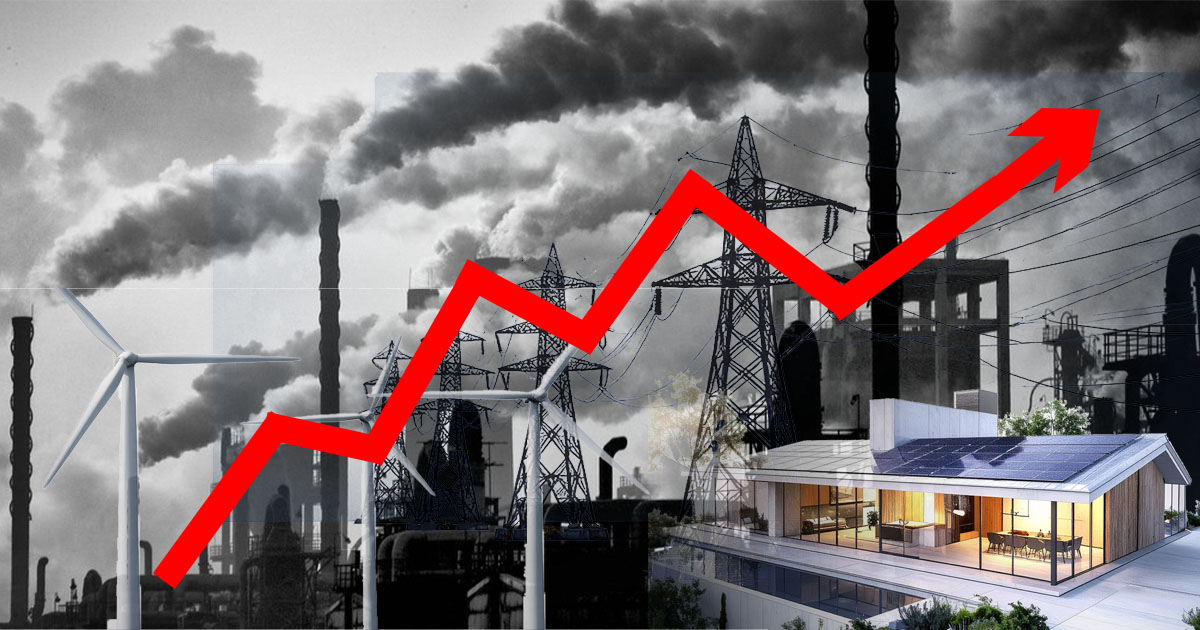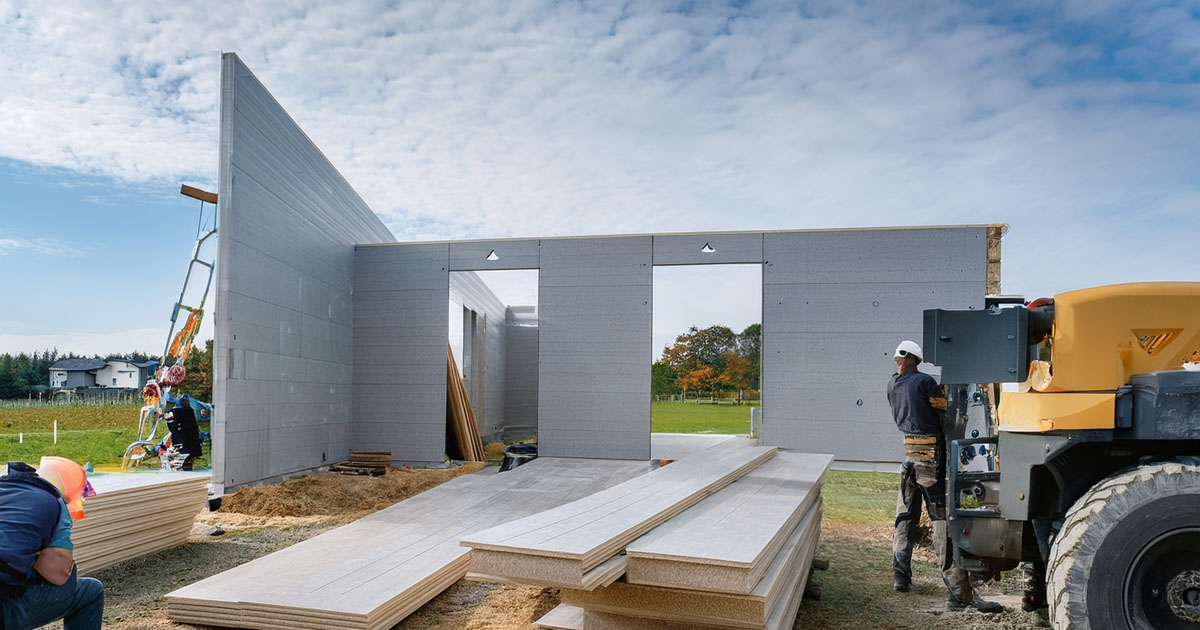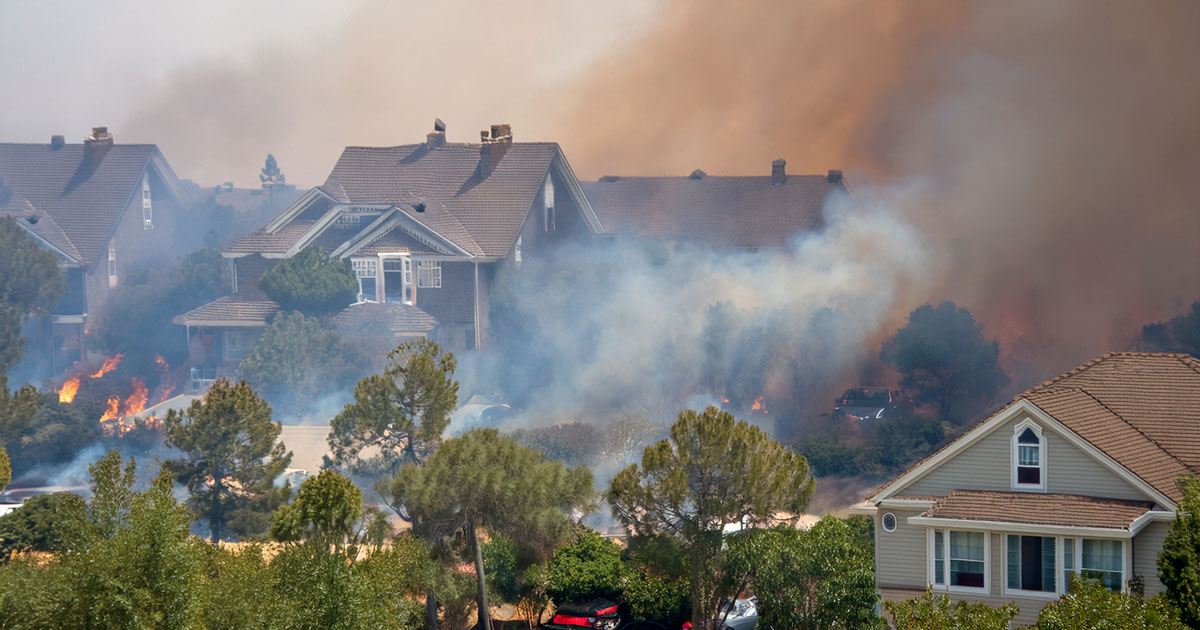Why Rising Energy Costs Make Smarter Housing a No-Brainer
What a recent Ezra Klein episode reveals about cost, permitting, and how to rebuild faster On a recent episode of The Ezra Klein Show, climate...
3 min read
 Timothy Lorang
:
July 29, 2025
Timothy Lorang
:
July 29, 2025

On a recent episode of The Ezra Klein Show, climate experts Jesse Jenkins and Jane Flegal laid out a surprising picture of where America’s energy transition stands in 2025. Despite political rollbacks and rhetoric aimed at killing green initiatives, billions in federal investment from the Inflation Reduction Act (IRA) and CHIPS Act are still quietly flowing into clean energy and infrastructure. But as the political climate grows colder toward sustainability, companies and communities are being forced to rethink how—and why—they push forward.
What stood out most in the episode wasn’t just the behind-the-scenes success of clean energy investment. It was something far more practical: Electricity prices are expected to rise by 12% to 15% in the coming years, thanks in part to policies that deprioritize renewables and increase reliance on fossil fuels. That means even Americans who are skeptical of “green” policy are about to feel a very real, very nonpartisan pain: higher energy bills.
For Simplus Systems, this is more than a political conversation—it’s a call to action. We don’t need people to believe in climate change to make the case for better buildings. We just need them to care about cost, comfort, and resilience.
As Jenkins and Flegal discussed, much of the U.S. energy policy debate is now divorced from climate language entirely. Conservative regions are seeing massive clean energy wins—new factories, jobs, battery plants, grid upgrades—without calling them “climate investments.” That political reframing is happening alongside aggressive federal rollbacks, most notably the EPA’s effort to overturn the 2009 Greenhouse Gas Endangerment Finding.
At the same time, utility costs are climbing. More reliance on fossil fuels and fewer incentives for energy upgrades mean consumers and builders alike are facing more expensive power in the very near future.
This creates a strange but powerful alignment: When electricity is expensive, Passive House and prefabricated efficiency just make even more economic sense. Simplus’ building system can reduce annual heating and cooling costs by up to 90%. In the post-IRA landscape, that’s not just a sustainability win—it’s a financial lifeline.
Whether you care about the planet, your wallet, or your ability to stay safe during extreme heat or wildfire smoke, the smartest building is the one that keeps working—quietly, efficiently, and affordably.
Another issue raised in the Ezra Klein episode—one with huge implications for the construction industry—was permitting reform. While the podcast focused largely on energy infrastructure like solar farms and transmission lines, the same barriers plague housing, especially when it comes to rebuilding after disasters.
Whether it’s wildfires in California, hurricanes in Florida, or floods in Texas, communities are stuck in a painful loop: homes are destroyed, survivors want to rebuild, but permitting delays and outdated zoning laws grind progress to a halt. Even when funding is available, it can take months or years to approve new developments or upgrades—by which time construction costs have risen or residents have been displaced permanently.
Simplus Systems was built to solve this exact problem. Our prefabricated, Passive House–based system can cut construction timelines in half, but only if local governments are ready to clear the way. We need smarter permitting, yes—but also smarter planning: one that rewards resilience, energy savings, and speed, rather than clinging to outdated codebooks and bureaucracy.
Jenkins and Flegal are right to emphasize the need for a more agile regulatory process. What they didn’t say (but what we know) is that housing is infrastructure, and the permitting crisis is just as acute in neighborhoods as it is on the grid.
Disaster Recovery Is the New Normal—We Need Smarter Building Now
As federal protections are stripped away and energy costs rise, communities are left more exposed than ever to climate-fueled disasters. It’s no longer a question of if we need to rebuild, but how—and how fast.
Simplus Systems combines two solutions that are tailor-made for this moment:
This isn’t theory—it’s already happening. Our pilot projects in California are proving that wildfire-resilient, low-energy housing is possible, affordable, and scalable. What we need now is for local and state governments to embrace the reality that green doesn’t have to mean slow or expensive. In fact, in this new political environment, it’s the fastest and most financially sound way forward.
At Simplus Systems, we believe in our solution—but we’re not territorial about it. If another system, approach, or policy helps people rebuild their homes faster, lowers their bills, and protects them from future disasters, we support it.
We want zoning and permitting reforms that serve the public good, not private interests. We want funding that rewards performance and resilience, not just status quo construction. And we want to work with officials, developers, and communities who are ready to act—not just study.
The political environment may have changed, but the urgency has not. Wildfires, heat waves, floods, and blackouts are still happening. Electricity prices are still rising. And families still need safe, affordable homes—now.
Whether you're a city planner trying to speed up recovery, a builder seeking a more efficient path, a homeowner facing a rebuild, or anyone who needs efficiency, economy, a safe and healthy environment, and speed, we’re here to help. Let's take action that works—no matter what language it's wrapped in.
Resilient, energy-efficient, wildfire-ready housing is within reach.
Contact us to learn how we can help your project move faster, cost less, and perform better—for decades to come.
Photo credit: “L1007414 Damn that Smoke” by DaiLuo, CC BY 2.0

What a recent Ezra Klein episode reveals about cost, permitting, and how to rebuild faster On a recent episode of The Ezra Klein Show, climate...

Wildfires don’t just destroy homes—they upend entire communities. From Paradise to Lahaina to Los Angeles, fire survivors face years of delays, red...

When a wildfire hits, most people worry about flames. But smoke is often both the immediate killer and the more pervasive, long-lasting...